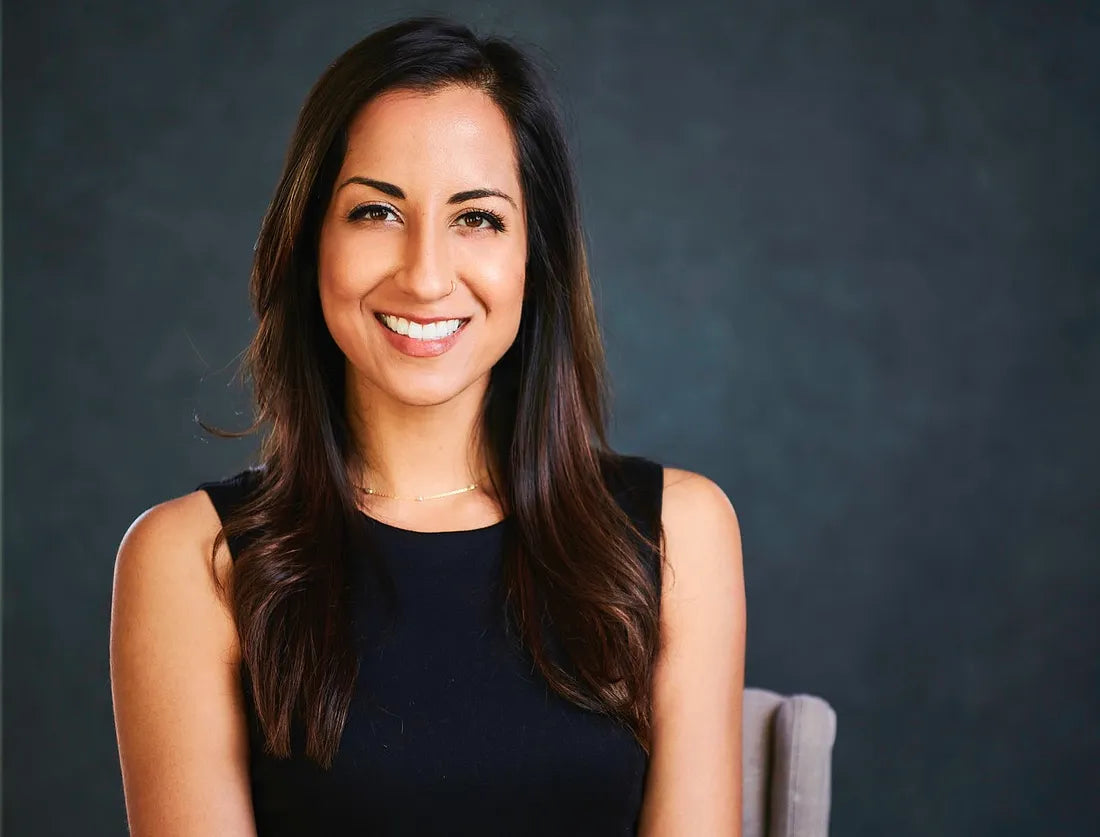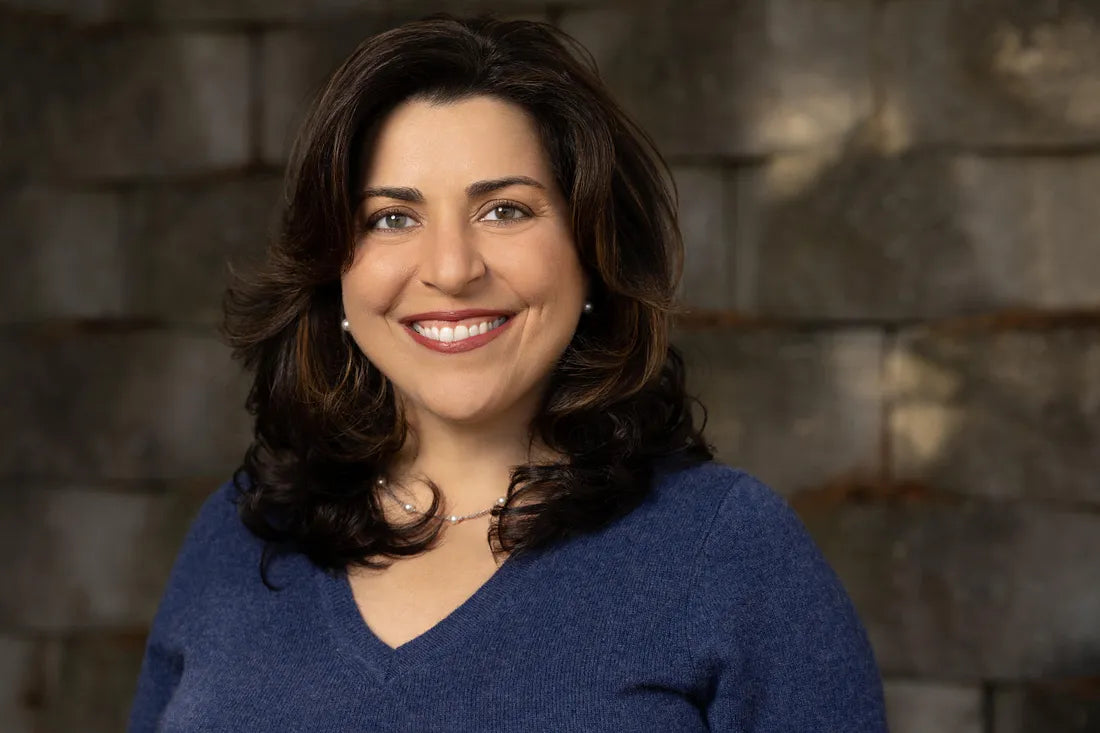Mediterranean Diet: The Mediterranean diet, rich in fruits, vegetables, whole grains, healthy fats (olive oil), and lean proteins (fish and legumes), has been associated with a reduced risk of heart disease, stroke, and cognitive decline. Its emphasis on monounsaturated fats and antioxidants provides anti-inflammatory and heart-protective benefits, in addition to helping to support positive fertility outcomes.
Inan era dominated by pharmaceutical solutions, there is a rising consciousness about the incredible healing and preventive powers of food. As the age-old saying goes, “Let food be thy medicine, and medicine be thy food.” But how does this translate in today’s world? Can we really use nutrition as a potent tool against sickness and disease? How does one curate a diet that supports health, longevity, and wellness? In this series, we are talking to nutritionists, dietitians, medical professionals, holistic health experts, and anyone with authoritative knowledge on the subject. As a part of this series, we had the pleasure of interviewing Rubaina Dang.
Rubaina Dang is a licensed naturopathic doctor practicing in California, specializing in dermatological, digestive and hormonal concerns. She is passionate about utilizing food as medicine and emphasizing the importance of nutrition in healing. In addition to her personal practice’s success in patient care, she also serves as an educator for Nutrafol and has been a valued faculty member at Bastyr University.
Thank you so much for joining us in this interview series! Before we dive into the main focus of our interview, our readers would love to “get to know you” a bit better. Can you tell us a bit about your childhood backstory?
Iam a first-generation Indian American who grew up in Fresno, CA. Being an only child, I had to navigate the challenges of growing up in a world where my culture, the food I ate, and the way I looked were different from those around me. This unique upbringing fueled my passion for clean eating, and from an early age, I made the conscious decision to incorporate more plant-based foods into my diet as a means to optimize my health. This journey sparked a lifelong passion for health and wellness that continues to inspire me today.
What or who inspired you to pursue your career? We’d love to hear the story.
My career choice was profoundly influenced by a transformative experience during my college years. One summer, I ventured to an organic farm in the Amazonian region of Ecuador, where I immersed myself in the cultivation of medicinal herbs, fruits, and vegetables. It was there that I encountered a local medicine man from a neighboring village who would come to collect these plants, and, captivated by his work, I asked to accompany him one day.
Witnessing the medicinal plants I had helped harvest being transformed into potent remedies and the people who sought his aid praising his healing abilities left an indelible impression on me. From the seedling to the finished medicine, I realized the profound impact one could have on others’ well-being. This experience ignited my passion and determination to follow a path that would allow me to become a healer, much like the medicine man I admired in that Amazonian village.
It has been said that our mistakes can sometimes be our greatest teachers. Can you share a story about the funniest mistake you made when you were first starting? Can you tell us what lesson you learned from that?
During my time in naturopathic medical school, we participated in botanical medicine classes that involved preparing herbal formulations. Learning the Latin names of these herbs was challenging since they often differed from their common names. One day, in our botanical medicine formulations class, I made one of the funniest, yet potentially disastrous, mistakes by confusing veratrum album for viburnum opulus, which almost turned a female’s PMS formula into an anti-hypertensive one. Fortunately, I was corrected in the nick of time, and that incident taught me a valuable lesson about the importance of knowing the correct Latin names for herbs.
You are a successful leader. Which three character traits do you think were most instrumental to your success? Can you please share a story or example for each?
My success can be attributed to several key traits that have supported my journey. Firstt, my unwavering drive compelled me to pursue medical school and secure a coveted residency position. In the competitive world of naturopathic medicine, where only 10% of graduates from naturopathic medical school manage to match for residency, I was fortunate to secure my top choice, providing me with additional training that has significantly advanced my career.
Moreover, my innate empathy has played a crucial role in establishing deep connections with my patients. This enables them to feel truly seen, heard, and understood during their health challenges. I take pride in my ability to dig down to the root causes of their concerns, allowing us to develop comprehensive strategies that lead to symptom-free lives.
Lastly, my passion for learning has been instrumental in my success. I’ve consistently sought opportunities to expand my knowledge and expertise, always aiming to become a more skilled and well-rounded doctor. This commitment to ongoing education has not only benefited me but, more importantly, has allowed me to provide a high level of care and support to my patients.
What are some of the most interesting or exciting projects you are working on now? How do you think that might help people?
I’m currently involved in a few exciting projects that are shaping my professional journey. Foremost, I will be educating fellow health professionals by actively participating as a speaker at multiple conferences this next year. Sharing my expertise and experiences not only helps me stay at the forefront of my field but also allows me to contribute to the growth of my peers in the healthcare industry.
In addition, I’m working on building my own health and wellness brand. This venture is an extension of my commitment to holistic well-being and will serve as a platform to reach a broader audience with valuable insights and resources.
Simultaneously, I’m in the early stages of exploring a business opportunity with the potential to make a global impact. This endeavor holds the promise of providing support and solutions to individuals around the world, furthering my mission to promote health and wellness on a grand scale.
OK, thank you for all of that. Let’s now shift to the core focus of our interview about cultivating wellness through proper nutrition and diet. To begin, can you tell our readers a bit about why you are an authority on the topic of nutrition?
My expertise in nutrition is rooted in my extensive background in naturopathic medicine. Through formal education in this field, I’ve acquired in-depth knowledge and skills essential for evaluating and implementing tailored nutrition plans. Nutrition is a fundamental component of my practice, and I apply it comprehensively to address the unique needs of each individual I work with.
We all know that it’s important to eat more vegetables, eat less sugar, etc. But while we know it intellectually, it’s often difficult to put it into practice and make it a part of our daily habits. In your opinion what are the main blockages that prevent us from taking the information that we all know, and integrating it into our lives?
The primary obstacles to incorporating nutrition into our diets are often a lack of awareness regarding individual dietary needs and the convenience of unhealthy food options. The rising cost of clean, whole, and organic foods, combined with the constant influx of conflicting dietary information in the media, adds to the challenge. In today’s fast-paced society, the connection to wholesome food is dwindling, as convenience often leads people to opt for faster but less nutrient dense choices.
From your professional perspective, do you believe that nutrition plays a pivotal role in supporting the body’s natural healing processes and overall well-being, particularly in cases of chronic diseases? We’re interested in hearing your insights on the connection between a holistic approach to diet and its benefits for individuals facing health challenges.
Nutrition is the foundation upon which our health is built, and the digestive system serves as the gateway to absorbing the nutrients our bodies need to function optimally. Chronic diseases often stem from long-term imbalances or deficiencies within the body. Nutrient-rich, well-balanced diets can help correct these imbalances, support the body’s immune system, and promote healing at the cellular level. Proper nutrition also aids in reducing inflammation, a common factor in many chronic conditions, while providing essential building blocks for the repair and regeneration of damaged tissues. A diet tailored to an individual’s specific needs can soothe digestive discomfort, improve nutrient absorption, and promote gut health.

Based on your research or experience could you share with us five examples of foods or dietary patterns that have demonstrated remarkable potential in preventing, reducing, or managing specific health conditions?
1 . Mediterranean Diet: The Mediterranean diet, rich in fruits, vegetables, whole grains, healthy fats (olive oil), and lean proteins (fish and legumes), has been associated with a reduced risk of heart disease, stroke, and cognitive decline. Its emphasis on monounsaturated fats and antioxidants provides anti-inflammatory and heart-protective benefits, in addition to helping to support positive fertility outcomes.
2 . High-Protein Diet: A high-protein diet, when done correctly, can aid in weight management, muscle preservation, and the regulation of appetite. Lean protein sources like poultry, fish, lean meats, and plant-based options like tofu and legumes can be instrumental in achieving these benefits. Protein-rich diets can also manage blood sugar levels, which can often be dysregulated in those that have diabetes, insulin resistance and PCOS.
3 . Incorporating Omega-3 Fatty Acids: Omega-3 fatty acids, found in fatty fish (salmon), avocado, olive oil and certain nuts have been associated with various health benefits. They are recognized for their anti-inflammatory properties and potential in reducing the risk of heart disease. Additionally, omega-3s are crucial for brain health, supporting cognitive function and potentially reducing the risk of cognitive decline. They are highly valued in various neurological conditions, such as epilepsy and traumatic brain injury.
4 . Probiotic and Prebiotic-Rich Foods: Probiotic-rich foods, like yogurt, kefir, and fermented foods, introduce beneficial bacteria into the gut, contributing to a balanced microbiome. Prebiotic-rich foods, including garlic, onions, and certain fruits, provide the necessary fiber for these beneficial bacteria to thrive. A healthy gut microbiome is linked to better digestion, immune function, and a lower risk of digestive disorders. This is helpful with many individuals who have been given the diagnosis of IBS (with the exception of SIBO — which would then be recommended a low FODMAP diet). Therefore, it’s important to work with a profession of getting to the root cause of digestive issues to help tailor the correct diet plan.
5 . Phytonutrients: Berries, such as blueberries, strawberries, and raspberries, are rich in antioxidants, fiber, and various cancer fighting compounds. These nutrients are associated with improved cognitive function and a reduced risk of chronic diseases, including heart disease and atherosclerosis. Berries are recognized for their anti-inflammatory and disease-fighting properties.
Do experts generally agree that merely choosing healthy foods isn’t sufficient, but that understanding how to consume them is key to unlocking their full health benefits? (For example, skins on/off, or cooked/raw, or whole grain/refined grain). Could you provide advice on how to approach this and sidestep common errors or misconceptions?
Absolutely. Understanding how to consume them is crucial to unlock their full health benefits. How you prepare, cook, and consume foods can significantly impact their nutritional value and how they affect your health. Different cooking methods can affect the nutrient content of foods. For example, boiling and steaming are gentler cooking techniques that preserve nutrients better than frying or overcooking. While some nutrients are better preserved in raw foods, cooking can enhance the bioavailability of certain nutrients. For instance, cooking tomatoes releases more lycopene, which is beneficial for heart health. In many cases, the peels and skins of fruits and vegetables are rich in nutrients and fiber. Eating them can boost your intake of vitamins and minerals. Just make sure to wash them thoroughly to remove any pesticides or contaminants.
With the recent prominence of nutrition’s integration into healthcare, what’s your perspective on the collaborative approach between medical professionals, health coaches, and nutrition experts when it comes to delivering holistic patient care? Can you please explain?
Health issues are often multifaceted, and a patient’s well-being depends on more than just medical interventions. Collaborating with nutrition experts and health coaches allows healthcare providers to address various aspects of a patient’s health, which can lead to greater compliance with medical recommendations and improved outcomes. This comprehensive approach promotes better overall health outcomes as medical professionals oftentimes don’t have the ability to dive into the nutrition aspect in their care. By integrating other nutrition and health professionals, the healthcare team can tailor their recommendations to the specific needs and goals of each patient, fostering a more personalized and effective approach.
It’s been suggested that using ‘food as medicine’ has the potential to reduce healthcare costs by preventing disease severity. However, there’s concern about the affordability of healthier food options. What solutions do you believe could make nutritious choices accessible to everyone, ensuring that food truly becomes a form of medicine for all?
To make nutritious choices accessible to everyone, several solutions and strategies can be implemented. Promoting community gardens and urban farming initiatives can make fresh produce more accessible and affordable. These projects empower communities to grow their own healthy foods and collaborate with one another. Governments can also provide subsidies for the production and consumption of healthier foods, in addition to making them more readily available in workplace and school environments. Tax incentives for businesses that promote employee wellness through healthy food options can also be effective. By implementing nutrition education programs and cooking classes can teach individuals how to make nutrient dense meals affordable and accessible.
Everyone’s body is unique, and what works for one might not work for another. How does one navigate the vast array of nutritional advice available today to curate a diet tailored to individual needs, ensuring health and longevity?
Seeking professional guidance is a crucial first step. A certified nutrition expert can assess each individual’s specific health goals, dietary preferences, and any underlying health conditions by creating a customized nutrition plan. Learning about individual dietary needs, including macronutrients (carbohydrates, proteins, fats), micronutrients (vitamins, minerals), and hydration can all be tailored for each person. In addition, factors such as age, activity level, underlying medical conditions and metabolism can influence each person’s requirements, making it important to seek a profession for individualized care.
As our understanding of the intricate link between food and health continues to evolve, we’re curious to know which emerging trends or breakthroughs in nutritional science excite you the most. How do you envision these advancements shaping the future of healthcare?
Currently, the spotlight is on protein, which is exciting for a variety of reasons. Protein is often considered the most essential macronutrient due to its multifaceted roles in the body. It is vital for building and repairing tissues, supporting immune function, and serving as an energy source. What particularly excites me in nutritional science are emerging trends in personalized nutrition and the understanding of the gut microbiome and the role that protein can play in supporting the integrity of digestive health and function. In addition, protein is essential for blood sugar regulation, supporting individuals with chronic and inflammatory conditions, and is integral in the utility of amino acids in supporting dermatological and hair health.
How can we better educate the public about the medicinal properties of food, and what role do professionals like you play in this educational journey?
Healthcare professionals play a crucial role by actively engaging in public education through workshops, seminars, articles, and social media. By providing evidence-based information, practical guidance, and personalized dietary recommendations, professionals can empower individuals to make informed choices and harness the healing potential of food for improved health and well-being.
How can our readers further follow your work online?
They can find me on my website at www.drrubainadang.com or connect with me on social media @healwithdrdang.
Thank you for these really excellent insights, and we greatly appreciate the time you spent with this. We wish you continued success and good health!
About the Interviewer: Wanda Malhotra is a wellness entrepreneur, lifestyle journalist, and the CEO of Crunchy Mama Box, a mission-driven platform promoting conscious living. CMB empowers individuals with educational resources and vetted products to help them make informed choices. Passionate about social causes like environmental preservation and animal welfare, Wanda writes about clean beauty, wellness, nutrition, social impact and sustainability, simplifying wellness with curated resources. Join Wanda and the Crunchy Mama Box community in embracing a healthier, more sustainable lifestyle at CrunchyMamaBox.com .




